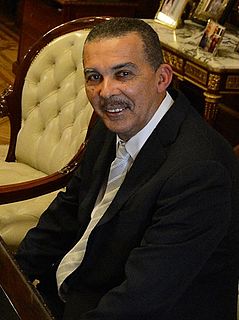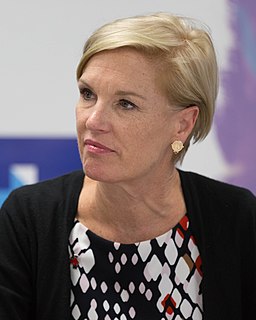A Quote by David Frum
One of the things we're all going to have to discover, establishment is just an abusive term for institutions. It's institutions that keep us free.
Quote Topics
Related Quotes
We believe in a free Europe, not a standardised Europe. Diminish that variety within the member states, and you impoverish the whole Community. We insist that the institutions of the European Community are managed so that they increase the liberty of the individual throughout the continent. These institutions must not be permitted to dwindle into bureaucracy. Whenever they fail to enlarge freedom the institutions should be criticised and the balance restored.
It is with your aid, as the people, that I think we shall be able to preserve - not the country, for the country will preserve itself, but the institutions of the country - those institutions which have made us free, intelligent and happy - the most free, the most intelligent, and the happiest people on the globe.
We create institutions and policies on the basis of the way we make assumptions about us and others. We accept the fact that we will always have poor people around us. So we have had poor people around us. If we had believed that poverty is unacceptable to us, and that it should not belong to a civilized society, we would have created appropriate institutions and policies to create a poverty-free world.
We kind of reduce our responsibility to not saying the N-word and to condemning the Klansmen, rather than saying many of our celebrated institutions are systemically racist. Many of our institutions that deal with law enforcement or controlling the bodies of Black people are systemically racist. Many of our educational institutions are systemically racist. Many of our corporate institutions are systemically racist. We don't have those conversations, so things don't change.
Why should Canada, wild and unsettled as it is, impress us as an older country than the States, unless because her institutions are old? All things appeared to contend there, as I have implied, with a certain rust of antiquity, such as forms on old armor and iron guns,--the rust of conventions and formalities. It is said that the metallic roofs of Montreal and Quebec keep sound and bright for forty years in some cases. But if the rust was not on the tinned roofs and spires, it was on the inhabitants and their institutions.
There is no reason to accept the doctrines crafted to sustain power and privilege, or to believe that we are constrained by mysterious and unknown social laws. These are simply decisions made within institutions that are subject to human will and that must face the test of legitimacy. And if they do not meet the test, they can be replaced by other institutions that are more free and more just, as has happened often in the past.
Local assemblies of the people constitute the strength of free nations. Municipal institutions are to liberty what primary schools are to science: they bring it within the people's reach, and teach them how to use and enjoy it. A nation may establish a system of free government, but without the spirit of municipal institutions it cannot have the spirit of liberty.
We can't have extraordinary dynamism, innovation, and change in the economy and expect to have predictability and stability in our personal lives. It's not as if there are these big, giant institutions existing between us and the economy. In fact, these institutions have become tissue-thin. There is no mediation anymore. We are the economy; the economy is us.
We all learn in school that the judicial, legislative and executive branches of government must check and balance each other. But other non state institutions must participate in this important system of checks and balances as well. These checking institutions include the academy, the media, religious institutions and NGOs.



































